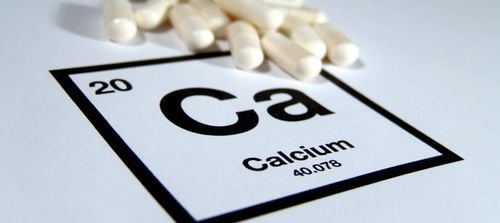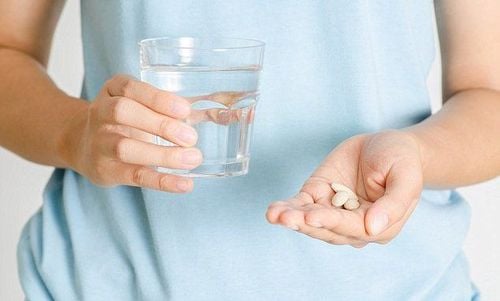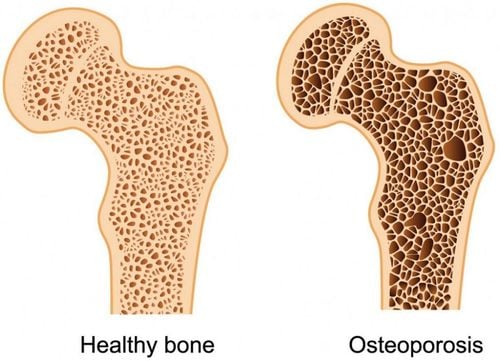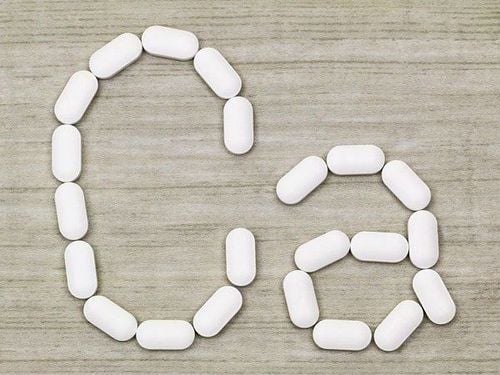This is an automatically translated article.
Calcium and vitamin D are two keys to sustainable bone development. However, many people do not meet the nutritional needs of the body, leading to bone diseases. Therefore, supplementing these two nutrients for the body is extremely important.
1. The role of bone health
In the body, bones play an important role in helping to create a framework for the body, protect organs and store calcium ... Over time, bones and joints are degraded leading to many other health problems. Osteoporosis is a common condition in both men and women. This is a common bone disorder that causes loss of bone density and mass. This causes bones to become thin, weak, and fragile. According to experts, it is estimated that more than 1.3 million osteoporosis-related fractures occur each year in the United States, mainly the bones in the spine (vertebrae), hip, and forearm near the wrist.
Several treatments can help prevent bone loss and treat low bone mass.
2. Benefits of Calcium and Vitamin D
2.1. Benefits of calcium
Taking calcium helps reduce bone loss and reduces the risk of vertebral fractures (bones surrounding the spinal cord). ● Consuming calcium in childhood (eg, in milk) can lead to higher bone mass in adulthood. An increase in bone density reduces the risk of future fractures.
Calcium may also be beneficial in other body systems by reducing blood pressure and cholesterol levels.
● Calcium and vitamin D supplements may help prevent tooth loss in older adults.
According to experts, premenopausal women and men should consume at least 1000 mg of calcium. Postmenopausal women should consume 1200 mg per day. You should not consume more than 2000 mg of calcium per day because of the risk of side effects.
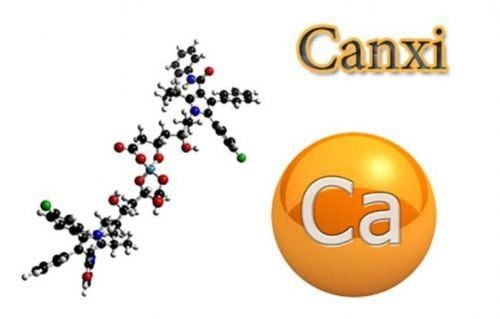
Uống canxi giúp giảm mất xương và giảm nguy cơ gãy đốt sống
2.2. Benefits of Vitamin D
Adequate vitamin D intake reduces the risk of bone loss and fracture, especially in older men and women. Along with calcium, vitamin D also helps prevent and treat osteoporosis. In order to absorb calcium effectively, the body also needs to have an adequate amount of vitamin D.
3. How to supplement calcium and vitamin D for bone health
To promote bone health, you should supplement calcium and vitamins for your body in different ways such as foods, supplements:
3.1. Canxi additional
Major dietary sources of calcium include milk and other dairy products (hard cheese, cottage cheese or yogurt) as well as green vegetables (kale and broccoli). Some cereals, soy products, and fruit juices are fortified with calcium.
Calcium supplements: If you cannot get enough calcium from dietary sources, consult your doctor to determine the best type, dose, and timing of calcium supplements.
● Calcium carbonate is the least expensive and highly effective form of calcium. Oral tablets are best absorbed with a low-iron meal (such as breakfast). Calcium carbonate is not absorbed well when combined with medicines specifically for GERD (called proton pump inhibitors or H2 blockers), which block stomach acid.
● Many natural calcium carbonate preparations such as oyster shells or bone meal contain some lead.
● Calcium citrate is well absorbed in the fasted state as well as during meals.
● Doses of calcium above 500 mg are not absorbed as well as smaller doses, so large doses of the supplement should be taken in divided doses (eg morning and evening).
● Calcium supplements do not replace other osteoporosis treatments such as hormone replacement, bisphosphonates (e.g., Risedronate [sample brand: Actonel] and alendronate [brand: Fosamax]) and raloxifene (brand: Evista).
3.2 Vitamin D supplementation
Sunbathing is an effective way to supplement vitamin D. Milk is a relatively good dietary source of vitamin D. Salmon is high in calcium. Using oral supplements with vitamin D will help the body work supple, reduce many bone diseases. Small changes in your diet will help you protect and promote bone health effectively.

Tắm nắng là một cách bổ sung vitamin D một cách hiệu quả
Please dial HOTLINE for more information or register for an appointment HERE. Download MyVinmec app to make appointments faster and to manage your bookings easily.
Reference source: update.com




